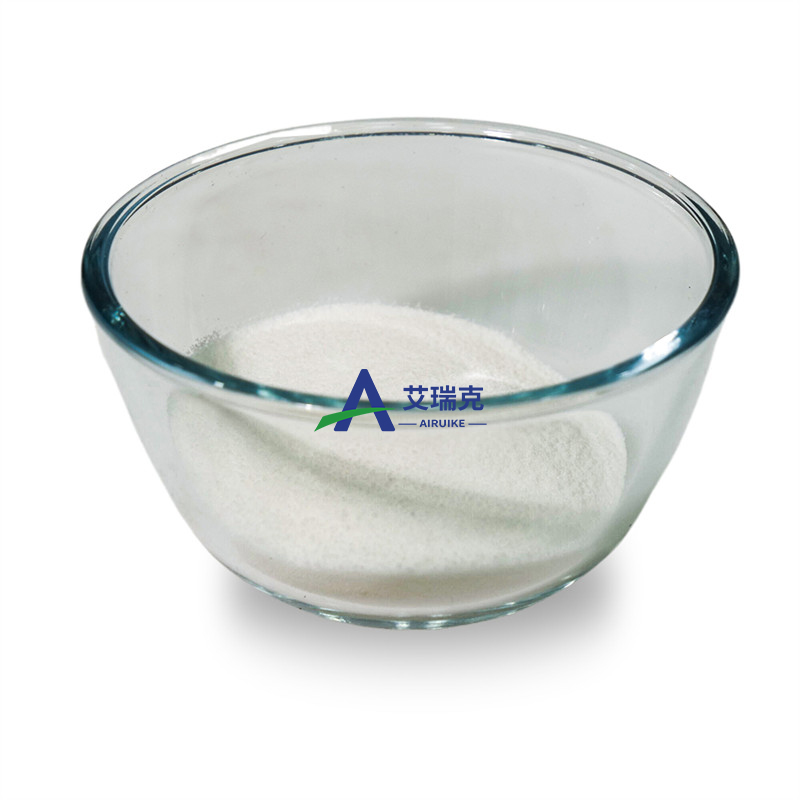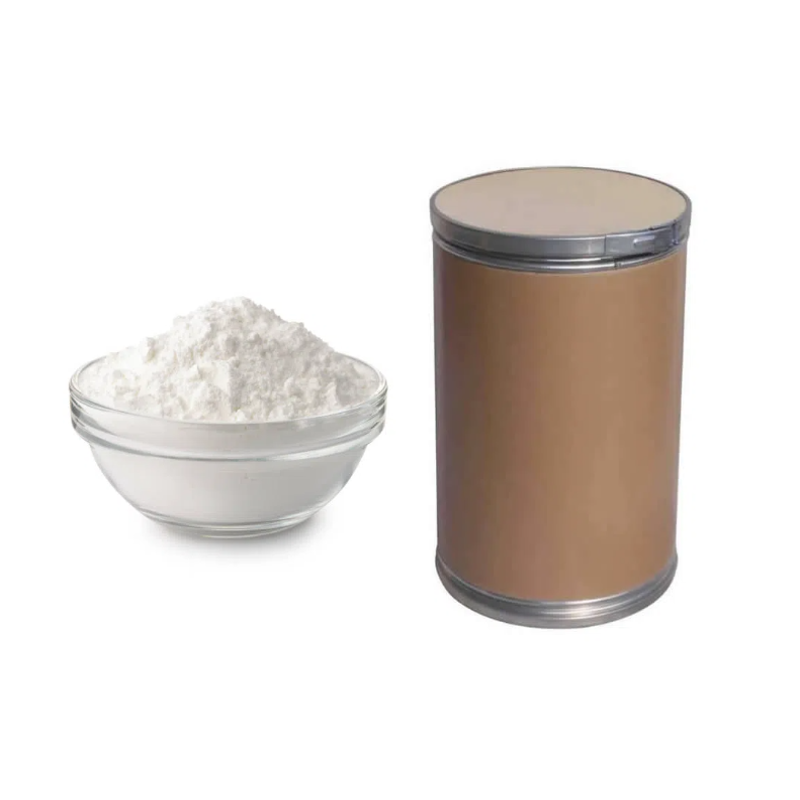-
Categories
-
Pharmaceutical Intermediates
-
Active Pharmaceutical Ingredients
-
Food Additives
- Industrial Coatings
- Agrochemicals
- Dyes and Pigments
- Surfactant
- Flavors and Fragrances
- Chemical Reagents
- Catalyst and Auxiliary
- Natural Products
- Inorganic Chemistry
-
Organic Chemistry
-
Biochemical Engineering
- Analytical Chemistry
-
Cosmetic Ingredient
- Water Treatment Chemical
-
Pharmaceutical Intermediates
Promotion
ECHEMI Mall
Wholesale
Weekly Price
Exhibition
News
-
Trade Service
The editor commented that prostate cancer is the second most common cancer among men in the world
.
Patients with advanced prostate cancer often suffer from reduced quality of life and higher mortality due to symptoms such as dysuria, urinary incontinence, and hematuria
.
In order to improve the treatment level of advanced prostate cancer and the quality of life of patients, the National Comprehensive Cancer Network (NCCN) and the American Academy of Urology (AUA) will each update the prostate cancer diagnosis and treatment guidelines in 2021, and provide guidance on the treatment of advanced prostate cancer.
I hereby organize it for readers
.
Prostate cancer is an androgen-dependent tumor.
Among them, metastatic hormone-sensitive prostate cancer (mHSPC) is a type of advanced prostate cancer with a better prognosis.
Androgen deprivation therapy (ADT) is usually used clinically as the standard treatment, but Most patients will eventually progress to castration-resistant prostate cancer (CRPC)
.
When the disease progresses to the CRPC stage, traditional endocrine therapy drugs have failed.
How to treat CRPC patients clinically to prolong the survival period of the patients is a major challenge for clinicians
.
Treatment of mHSPC Hormone-sensitive prostate cancer (HSPC) refers to patients who have not received ADT treatment before and who have not received ADT treatment when the disease has progressed
.
The AUA guidelines adopted this name, and the NCCN guidelines defined this stage as castration-naïve prostate cancer
.
NCCN guideline recommendation 1: For the treatment of mHSPC, ADT combined with enzalutamide (class 1 recommendation), abiraterone (class 1 recommendation), apatamide (class 1 recommendation) or docetaxel 75mg/m2 is the first choice 6 cycles (Class 1 recommendation); or ADT combined with external radiation therapy (EBRT) for the primary tumor of low-load tumor; or ADT alone
.
AUA guideline recommendation 2: For the treatment of mHSPC, it is recommended to continue ADT therapy combined with any of the following androgen pathway therapies: enzalutamide, abiraterone, prednisone or apatamide, or combined chemotherapy (strong Recommendation; Level of Evidence: Level A)
.
Although enzalutamide has not been approved for mHSPC indications in China, ENZAMET and ARCHES studies have shown that enzalutamide has significant benefits for mHSPC patients
.
The ENZAMET study compared the efficacy of enzalutamide combined with ADT or ADT alone in the treatment of mHSPC patients.
The results showed that after a median follow-up of 34 months, the death rate of the enzalutamide group was much lower than that of the placebo group (102 cases vs.
143 cases) )
.
ARCHES Study 3 is a multi-center, double-blind, randomized, placebo-controlled Phase III clinical study, which aims to compare the efficacy of enzalutamide + ADT or placebo + ADT for mHSPC patients
.
The final overall survival (OS) results announced at the ESMO conference in 2021 showed that the median follow-up time was 44.
6 months.
Compared with the placebo group, the enzalutamide group significantly prolonged OS (HR=0.
66, 95% CI: 0.
53 -0.
81, p<0.
0001)
.
After 48 months of follow-up, the OS rate of the enzalutamide group was 71%, which was much higher than that of the placebo group (57%)
.
The other recommended drugs in the two guidelines also have sufficient evidence-based support
.
The LATITUDE study showed that ADT + abiraterone combined with prednisone compared with ADT + placebo for the treatment of mHSPC patients, the OS was significantly prolonged (not reached vs 34.
7 months; HR=0.
62, 95% CI: 0.
51-0.
76, P<0.
001)
.
The TITAN study compared the efficacy of ADT + apatamide or ADT + placebo for mHSPC patients.
The results suggest that the 24-month imaging progression-free survival (rPFS) benefit is significant (68.
2% vs 47.
5%; HR=0.
48,95 % CI: 0.
39-0.
60, P<0.
001)
.
In addition, the CHAARTED study also confirmed that docetaxel has certain benefits in the treatment of mHSPC
.
The treatment of nmCRPC Non-metastatic castration-resistant prostate cancer (nmCRPC) is a special stage of the transition from non-metastatic hormone-sensitive prostate cancer (nmHSPC) to metastatic castration-resistant prostate cancer (mCRPC)
.
NCCN guideline recommendation 1: For the treatment of nmCRPC patients, ADT should be continued to maintain the serum testosterone at castrated levels (<50ng/dL), and stratified according to PSA doubling time (PSADT): 1) For PSADT>10 Months of patients should be monitored or other second-line hormone therapy; 2) For patients with PSADT ≤ 10 months, enzalutamide (class 1 recommendation), apatamide (class 1 recommendation) or dalota Amine (Class 1 recommendation) treatment, other second-line hormonal treatments can be selected when the first choice is ineffective
.
During treatment, PSA monitoring and imaging examinations should be performed regularly to assess disease progression.
If there is no disease progression, maintain the current treatment plan and perform regular monitoring; if PSA is elevated or imaging progression occurs, judge whether distant metastasis has occurred, and then Choose different treatment strategies
.
AUA Guidelines Recommendation 4: For patients with nmCRPC who are at high risk of metastasis (PSADT ≤ 10 months), clinicians should first choose ADT combined with enzalutamide, apatamide or dalotamide (strong recommendation; level of evidence: Level A) ) The PROSPER study is a double-blind, randomized controlled phase III clinical study to evaluate the efficacy of enzalutamide or placebo in nmCRPC
.
The study included 1401 nmCRPC patients who were randomized 2:1 to receive enzalutamide or placebo treatment, and both groups continued to receive ADT treatment
.
The results showed that the mortality rate of the enzalutamide group was much lower than that of the placebo group (23% vs 49%)
.
The median metastasis-free survival (MFS) of the enzalutamide group was 36.
6 months, while that of the placebo group was only 14.
7 months (HR=0.
29, 95% CI: 0.
24-0.
35, P<0.
001)
.
Compared with the placebo group, the OS in the enzalutamide group was significantly prolonged (67.
0 vs 56.
3 months), and the risk of death was greatly reduced (HR=0.
73, 95% CI: 0.
61-0.
89, P=0.
001)
.
In addition, the SPARTAN study suggests that compared with placebo, apatamide can prolong the median MFS of patients with nmCRPC (40.
5 vs 16.
2 months; HR=0.
28, 95% CI: 0.
23-0.
35, P<0.
001)
.
The ARAMIS study indicated that the median MFS was significantly prolonged with dalotamide + ADT compared with placebo + ADT (40.
4 vs 18.
4 months; HR=0.
41, 95% CI: 0.
34-0.
50; P<0.
001)
.
The NCCN guidelines for systematic treatment of mCRPC point out that patients entering the mCRPC stage should first determine the location of distant metastases based on the results of imaging examinations, and determine the tissue biopsy to clarify the nature of the metastases
.
Before the nature of the metastasis is determined, the patient should continue to be treated with ADT to maintain the serum testosterone at the castrated level (<50ng/dL); if the patient develops bone metastasis, desulumab or zoledronic acid should be the first choice for anti-bone resorption Treatment; if bone metastases are accompanied by pain, palliative radiotherapy may be considered
.
NCCN Guidelines Recommendation 1: The treatment of mCRPC should be based on the previous treatment to choose an appropriate treatment plan: 1) For patients who have not previously received docetaxel treatment and have not received new hormone therapy, enzalutamide is the first choice (Class 1 recommendation) ), abiraterone (class 1 recommendation) or docetaxel (class 1 recommendation) treatment; if the patient is accompanied by bone metastasis and symptoms, treatment with radium-223; other recommended regimens are second-line hormone therapy; 2) for For patients who have previously received docetaxel treatment but have not received new hormone therapy, the first choice is enzalutamide (class 1 recommendation), abiraterone (class 1 recommendation) or cabazitaxel treatment; mitoxantrone can be used for relief Symptomatic patients who cannot tolerate other treatments; Pembrolizumab is used for patients with MSI-H or dMMR or TMB>10 mut/Mb; Radium-223 is used for patients with symptomatic bone metastases; other recommended regimens are second-line Hormone therapy; 3) For patients who have previously received new hormone therapy but have not received docetaxel treatment, the first choice is docetaxel (type 1 recommendation) and Sipuleucel-T; other recommended options are enzalutamide or Abiraterone; 4) For patients who have previously received docetaxel or new hormone therapy, the first choice is cabazitaxel or docetaxel and then challenge treatment; other recommended therapies are enzalutamide or abiraterone
.
AUA guideline recommendation 4: For newly diagnosed mCRPC patients, the first choice is ADT combined with enzalutamide, abiraterone with prednisone or docetaxel (strong recommendation; level of evidence: A[enzalutamide and abiraterone United Prednisone] B [Docetaxel])
.
New-type endocrine therapy has progressed rapidly in recent years, with significant clinical benefits, and has been recognized by the majority of urological oncologists
.
The PREVAIL study is a double-blind, phase III study, enrolling a total of 1,717 mCRPC patients who were randomized to receive enzalutamide treatment or placebo treatment
.
The results showed that compared with the placebo group, the progression-free survival (PFS) (20.
0 vs 5.
4 months) and OS (35.
3 vs 31.
3 months) of the enzalutamide group were significantly prolonged, significantly reducing the risk of imaging progression and the risk of death
.
The AFFIRM study compared the efficacy of enzalutamide or placebo for CRPC patients, and the results showed that the median OS of the enzalutamide group was significantly higher than that of the placebo group (18.
4 vs 13.
6 months; P<0.
001)
.
In addition, the COU-AA-302 study confirmed that compared with placebo, abiraterone can prolong rPFS (HR=0.
53, 95% CI: 0.
45-0.
62, P<0.
001) and OS (HR=0.
81, 95% CI: 0.
70-0.
93, P=0.
0033)
.
Summary With the progress of more and more clinical trials and the update of new endocrine drugs, the treatment guidelines for patients with advanced prostate cancer are also updated and improved year by year
.
I believe that in the near future, patients with advanced prostate cancer will face more treatment options, and the five-year survival rate and quality of life will also be greatly improved, ushering in new hopes
.
References: 1.
Prostate Cancer NCCN Guidelines V1.
2022.
2.
Advanced Prostate Cancer: AUA/ASTRO/SUO Guideline PART I.
3.
Final overall survival (OS) analysis from ARCHES: A phase III, randomized, double-blind, placebo ( PBO)-controlled study of enzalutamide (ENZA) + androgen deprivation therapy (ADT) in men with metastatic hormone-sensitive prostate cancer (mHSPC).
2021 ESMO,LBA25.
4.
Advanced Prostate Cancer: AUA/ASTRO/SUO Guideline PART II.







